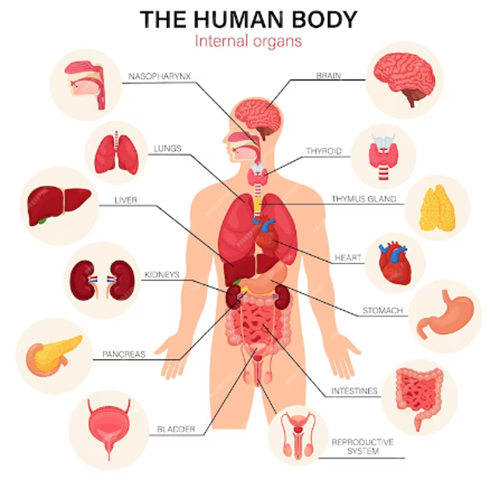The saying, ‘people live to die’; encapsulates the idea that death is an inevitable part of human experience, and lives, in a way, are a journey toward that ultimate end.
This contemplative expression underscores the transient nature of life and encourages reflection on human mortality.
But in the intricate journey of life’s final moments pops a question: ‘which organ of the human body is the last to succumb when the heart and brain have already signaled their goodbyes?’
And contrary to what might have largely assumed, the end of heart and brain function doesn’t immediately mark the end of all human organs.
Remarkably, they can still serve a life-saving purpose for up to 30 minutes after brain death, according to medical experts.
However, once this critical window passes, these organs are no longer suitable for transplantation, says Dr. Seunggu Han, an ABMS board certified neurosurgeon.
The medical expert who is also an associate clinical professor in the department of neurosurgery at Stanford and currently practices in Salinas and Santa Cruz, California, said the brain, often seen as the epicenter of the human consciousness, surprisingly falls silent before the rest.
Its sensitivity to ischemia, a lack of adequate blood flow, begins a rapid decline into darkness, said the surgical neuro-oncologist. Astonishingly, this journey towards brain death starts as little as 180 seconds after the brain is deprived of oxygen.
He said while the brain’s symphony may fade, the thoracic organs, including the heart and lungs, continue their life-sustaining performance for an additional hour, offering hope for potential recipients.
In cases where death results from hypertension, like severe bleeding after a traumatic accident, the countdown is even swifter. Organs can be donated for just about 30 minutes after the body loses most of its blood.
Yet, within the human body, the brain still stands as the last survivor, even after the heart’s rhythm stops, and the breath of life retreats; the brain still clings to existence, orchestrating its final notes.
Deprived of oxygen and essential nutrients following the heart’s cessation, the brain’s neuronal ensemble embarks on a gradual fade into silence. Yet, intriguingly, certain brain cells defy this inexorable decline and preserve electrical activity even till minutes after the heart’s last beat.
But the duration of this process varies in each person depending on factors like the cause of death, the person’s health, and the speed of medical intervention. In the wake of cardiac arrest, irreversible brain cell damage occurs after a few minutes, leading to brain death, Dr. Han clarifies.
It is also important to note that the medical professionals determine death based on specific criteria, especially when the brain activity has irreversibly ceased, a person is considered clinically and legally deceased, Han said.
The brain, guardian of consciousness, is often the last organ to relinquish its function. It relies on a constant supply of oxygen and nutrients, making it crucial to administer cardiopulmonary resuscitation (CPR), during emergencies to keep blood flowing to the brain.
The human brain connects to the spine and is part of the central nervous system (CNS) and its various parts are responsible for personality, movement, breathing, and other crucial processes that keep people alive.
An average adult’s brain, according to medical information, weighs 3 pounds and is composed of 60% fat, with water, protein, carbohydrates, and salt accounting for the other 40%.
So, the brain is largely an organ made up of neural tissue, it is not a muscle, stressed Dr Han. It is also made up of three main parts, which are the cerebrum, cerebellum, and brain stem with each having a unique function and is made up of several parts as well.
Therefore, in the profound exploration of life’s final moments, the brain emerges as the ultimate toughie, and is not alone. The liver and kidneys, with their unique abilities to store and metabolize vital substances, can also persist for a brief time after the heart has stopped, Dr. Han submits.


